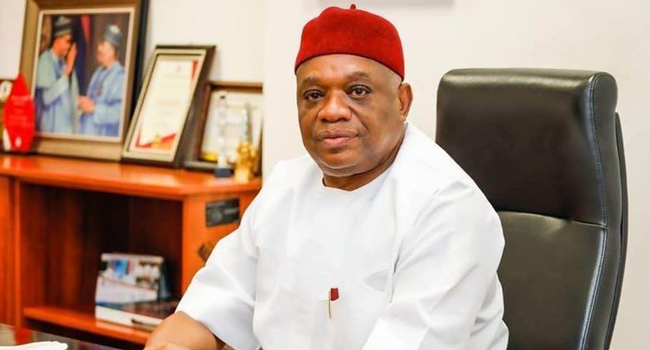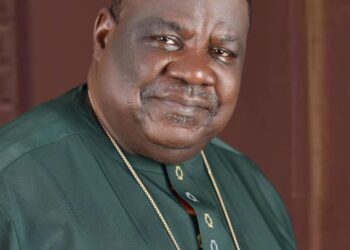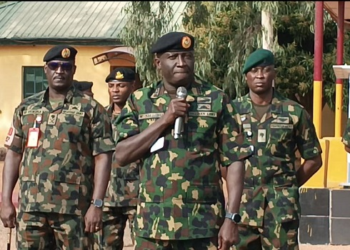Orji Kalu, the senator representing Abia north, says the federal government should urgently address the growing insecurity in many parts of the country.
In a video posted from China on his social media page on Monday, Kalu warned that terrorists may overrun the south-east region and Borno if no action is taken.
The senator said the worsening security situation requires decisive intervention devoid of politics.
Kalu, who chairs the senate committee on South East Development Commission (SEDC), urged the federal government to commit more resources to security agencies to confront the threat.
He warned that insecurity in Nigeria is no longer a matter of political argument but a dire national crisis.
The senator was reacting to a recent warning by Babagana Zulum, governor of Borno, who said insurgents have regained control of parts of the state.
Kalu said the situation in Borno mirrors the growing threat in the south-east and called for immediate intervention to prevent a total collapse.
“I want to believe Professor Zulum that the security situation is deteriorating every day, so we need to step up, especially in the south-east,” the lawmaker said.
“Our south-east governors are doing their best to fight insurgency. I would like the federal government to step up security in the south-east because it’s a gateway for people transporting goods from the ports and refineries.”
Kalu also faulted the ongoing disagreement between Zulum and Mohammed Idris, minister of information, over the state of security, insisting the president must be told the truth.
“For me, Professor Zulum and the minister don’t need to argue. These are fundamental issues. If we don’t tell President Tinubu the truth, the place will be ungovernable,” he said.
“So, it is better we tell him the truth on the condition of the insecurity situation in Nigeria.”
He commended the efforts of the armed forces and other security agencies, noting that they have shown commitment in the face of limited resources.
“Our Nigerian Army has been doing their best, and I congratulate them — especially the chief of army staff, the inspector-general of police, and other security chiefs — for all the efforts they have been putting in,” he said.
Kalu urged the federal government to channel more funds, equipment, and attention to Borno and the south-east.
“We cannot play politics with insecurity; we should take the art of governance very seriously,” he said.
The senator advised the minister of information to consult security chiefs before issuing public statements on security matters.
“No governor or president wants his people to die, so I urge the minister of information to step down some of the statements he is making about insecurity and should also consult the chief of army staff and the inspector-general of police,” he said.
“The national security adviser has also been on top of his game, but people should stop making statements without consulting the security agencies.”
Kalu expressed confidence in the security leadership, particularly the Department of State Services (DSS), and called on Nigerians to support President Bola Tinubu in tackling insecurity and rebuilding the economy.
“The DSS will continue to provide information. I believe Tosin is very capable — he is a young lad who is capable,” he said.
“We can rid all these criminals away and build our economy to be strong. Let us stop politics and concentrate on the economy of Nigeria.
“President Tinubu has done his best; let’s support him to build our economy together.”
Zulum recently expressed concerns over the resurgence of Boko Haram attacks and kidnappings across the state.
He spoke on April 8 at a security meeting attended by military commanders, traditional rulers, and other stakeholders.
On Sunday, Mohammed Monguno, senator representing Borno north, said any government that fails to guarantee the safety of its citizens does not deserve to remain in power.
Speaking in Maiduguri, the capital of Borno, after a security meeting, Monguno, a member of the ruling All Progressives Congress (APC), said security is the fundamental purpose of government.











